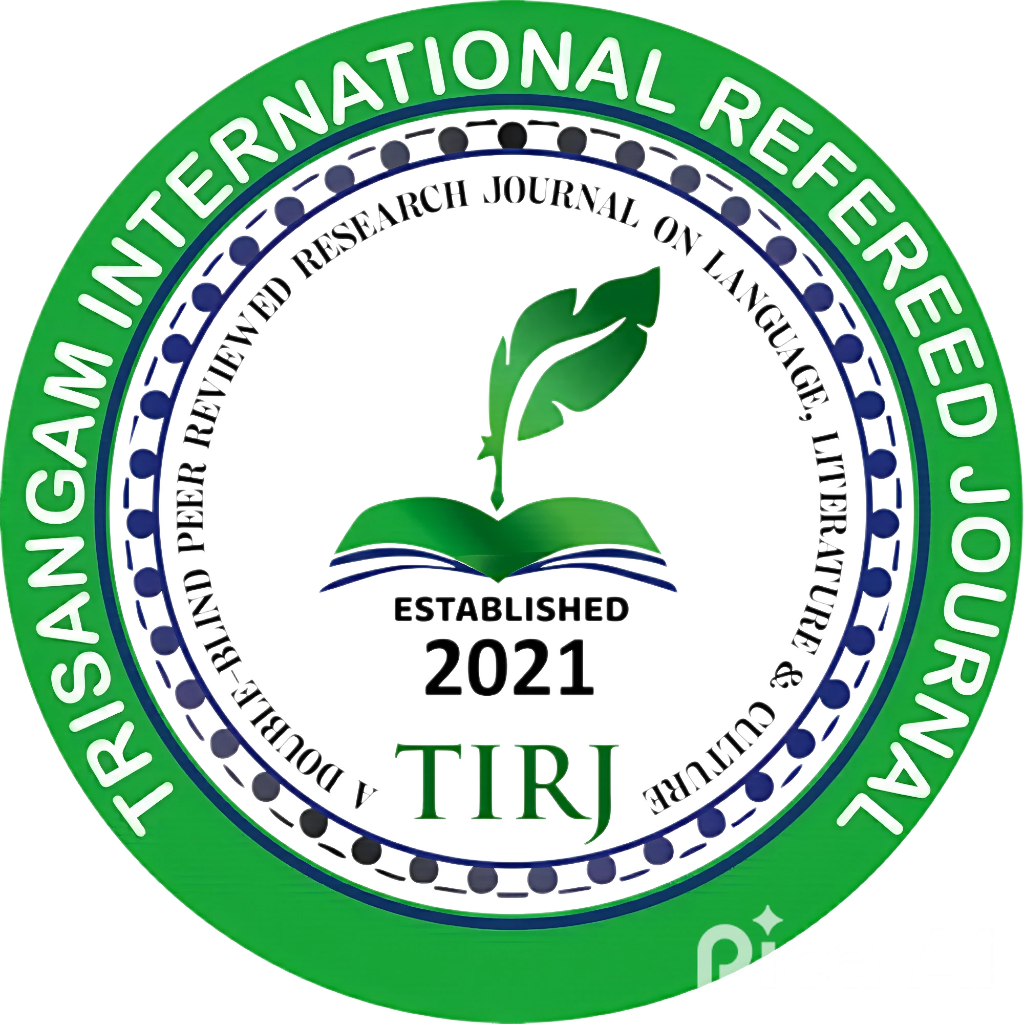The tragic consequences of motherhood in Subodh Ghosh's story 'Parashuramer Kuthar'/ সুবোধ ঘোষের ‘পরশুরামের কুঠার’ গল্পে মাতৃসত্তার করুন পরিণতি
Keywords:
- Parshuram,
- Dhaniya,
- tragic,
- orphanage,
- breastfeeding,
- profession,
- prostitute,
- motherhood
Abstract
The extraordinary thematic diversity of Subodh Ghosh's 'Parashuramer Kuthar' seems to be a natural artistic acknowledgment of real-life education. The story describes a tragic tale where a lactating mother is murdered by the axe of societal norms and pushed into the ranks of branded prostitutes. In a patriarchal society, we are all Parashurams who kill our mothers. Perhaps society itself is illuminated in the form of the rough axe-murder of an innovative, mother-killing Parashuram. The main character of the story is Dhaniya, a young rural woman. She does not live a healthy, normal life; her primary identity is as Tilak's mother. However, no one knows the identity of Tilak's father. In a strange way, Dhaniya gives birth to one child after another every year in the free beds of the Missionary Zenana Hospital, sends them to the Missionary orphanage, and returns to her 'Chagal Lodge'. In reality, her profession was to raise other people's children by breastfeeding them. Thus, motherhood was her profession, and her body was her commodity. But problems arose in the post-war years. Many new competitors arrived from across the sea—various foreign foods. Hence, today Dhaniya is not called to household homes. Today she is ostracized by society. When the middle class needed Dhaniya, there was no fault in her visiting homes. But today, she is not needed. Therefore, there is an objection even if she comes on festive days—she is now considered a 'randi' (prostitute) in the eyes of society.
When Dhaniya, who once gave new life to children by breastfeeding them, is wounded and battered by their lustful axes, she herself takes the initiative to punish herself. At the end of the story, we see Dhaniya having to go and stand in the prostitute quarter, having her name registered in the prostitutes' ledger. She, an innocent mother, is forced to become an object of uncontrolled sexual desire for the very children of respectable families whom she once nourished with her breast milk. This helpless, peculiar mother, in her faded youth, was forced to become a victim of lust by her own 'children'. This is the tragic consequence of motherhood.
Downloads
References
১. দত্ত, বীরেন্দ্র, বাংলা ছোটগল্প : প্রসঙ্গ ও প্রকরণ,৭ম মুদ্রণ, পুস্তক বিপণি, কলকাতা-৯. ২০১৪, পৃ. ৩৫
২. ভট্রচার্য, অধ্যাপক জগদীশ (সম্পা), সুবোধ ঘোষের শ্রেষ্ঠ গল্প, ত্রয়োদশ মুদ্রণ, প্রকাশ ভবন, কলকাতা-৭৩, ১৪২৪, পৃ. ৬২
৩. তদেব, পৃ. ৬২
৪. তদেব, পৃ. ৬২
৫. তদেব, পৃ. ৬৩
৬. তদেব, পৃ. ৬৪
৭. তদেব, পৃ. ৬৪
৮. তদেব, পৃ. ৬৭
৯. তদেব, পৃ. ৬৭
১০. তদেব, পৃ. ৬৭
১১. তদেব, পৃ. ৬৯
১২. তদেব, পৃ. ৬৭
১৩. তদেব, পৃ. ৬৮
১৪. বন্দ্যোপাধ্যায়, শ্রীকুমার, বঙ্গসাহিত্যে উপন্যাসের ধারা, নবম সংস্করণ, মর্ডাণ বুক এজেন্সি প্রাঃ লি, কলকাতা-৭৩, ১৯৯২, পৃ. ৬৪৬






